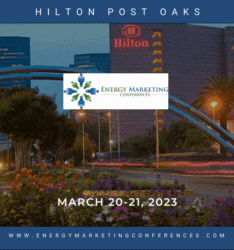|
|
|
|
|
RESA/NRG Seek Order From Pennsylvania PUC That Certain PPL Electric Communications To Shopping Customers Are Anti-Competitive, Violate Statute
The following story is brought free of charge to readers by EC Infosystems, the exclusive EDI provider of EnergyChoiceMatters.com
The Retail Energy
Supply Association and NRG Energy, Inc. filed a petition at the Pennsylvania PUC for a declaratory order finding that certain communications sent by PPL Electric
Utilities (PPL or PPL Electric) to supply customers of electric generation suppliers (EGSs) about their electric
supply prices and contracts with EGSs are unlawful and directing PPL Electric to immediately cease
sending these communications.
In addition to concerns relating to communication related to the Standard Offer program (SOP), RESA/NRG also alleged, "PPL has ... communicat[ed]
with presumably all shopping EGS customers (outside of SOP enrollments) about their contracts
with EGSs and the supply prices they are paying under those contracts."
RESA/NRG alleged that PPL has sent at least two types of electronic communications to supply customers
of EGSs in recent weeks, as follows:
(a) "One type of communication is aimed at SOP customers regarding their
options following expiration of their contracts and is labeled as an 'Important Notice.' It
advises SOP customers to check their energy supply contract and provides the electric
supply rate on the last bill. The communication goes onto say that PPL cares about
helping the customer manage costs, which is why it is reminding the customer to check
the EGS supply contract to see when it expires and what rate the EGS will charge after
expiration. PPL further advises the customer that once the annual SOP contract expires,
the EGS can change the rate. Finally, the communication informs SOP customers of their
options when the 12-month SOP term ends, including calling the current EGS to discuss
next steps, checking out PPL’s 'smart shopping tips,' and cancelling their contracts with
the EGSs, thereby automatically returning to default service through PPL," RESA/NRG alleged
(b) "A second type of communication, also labeled as an 'Important Notice,'
was sent to shopping customers receiving supply from EGSs in the competitive market
outside the parameters of the SOP. This email lists the shopping customer’s electric
supply rate on the last bill and further advises the shopping customer of the identity of its
selected EGS and provides a telephone number for contacting them. In the notice, PPL
also informs the shopping customer that it is trying to make sure that the bills are as low
as possible and reminds the shopping customer to compare the current supply rate with
other options that are available. Among the options identified by PPL are to contact the current EGS, check out PPL’s 'smart shopping tips' and cancel with the EGS so as to
automatically return to default service," RESA/NRG alleged
"Of note, the example in
Appendix B [of the petition] illustrates a situation in which the customer’s current supply price was slightly
above the PPL PTC for default service on November 1, 2022, but also demonstrates that the
price will be below the PPL PTC once it changes on December 1, 2022. This nuance is not
covered by the PPL communications, which seek to discourage customers from participating in
the retail electric market," RESA/NRG alleged
One of the communications from PPL Electric to a shopping customer states, "We want to make sure that your bills are as low as possible. That’s why we’re
reminding you to take a few minutes to compare your current supply rate (noted
above) with other options that are available."
Another communication states, "When you shop, beware of variable rates, which start small and then
increase depending on the price of power. (Visit our Shop Smart site below for
more tips.)"
RESA & NRG issued a joint statement concerning the matter:
"The Pennsylvania Public Utility Commission’s December 2020 Order explicitly prohibits PPL Electric Utilities from interfering in the contractual relationship between suppliers and their customers," said representatives from RESA and NRG. "We look forward to the Commission reviewing the matter and helping us to resolve this issue swiftly and in a way that reinforces its clear guidance. The Order clearly states that PPL Electric Utilities must refrain from any communication related to ESG’s electricity supply contracts. We expect PPL Electric Utilities to comply with the Order and to discontinue any interference with any supplier’s relationships with its customers."
--- Joint statement from RESA & NRG:
In the petition, RESA/NRG alleged, "The PPL communications: (i) drive customers to EGSs’ call centers; (ii) portray
the EDC as the expert on 'smart shopping tips,' without any reference to the Commission’s
shopping website, Pa.PowerSwitch.com; and (iii) promote default service by encouraging
customers to cancel service with the EGSs, thereby automatically returning to default service
through PPL. Further, the PPL communications focus on EGS customers obtaining the lowest
prices, which overlooks other benefits of shopping beyond price or that the EGS customer may
have expressly chosen a higher price than PPL’s current PTC due to a variety of factors,
including the long-term nature of the plan, a renewable product or other value-added services.
Finally, the PPL communications advise supply customers of EGSs regarding the terms of their
electric supply contracts, including prices, and offer advice as to actions customers should take
concerning the supply contracts."
"RESA and NRG urge the Commission to resolve this controversy by directing
PPL to immediately cease and desist from sending communications to EGSs’ supply customers
regarding their contractual terms, including prices for electric supply," RESA/NRG said
"[B]y informing customers of the option to cancel
their contracts and be automatically returned to default service, PPL is promoting its own default
service, which is contrary to prior Commission directives," RESA/NRG alleged
RESA/NRG said, "To be clear, these EGS
customers have actively shopped for an EGS and entered into a contract with the EGS that must
include specific information as mandated by the Commission’s regulations.
Specific regulatory requirements established by the Commission govern how and
when EGSs are to communicate with their customers about contract changes and expiration.
EDCs do not have any similar contracting or notice requirements regarding default service nor
do the Commission regulations require or authorize the EDCs to communicate with EGS
customers about the competitive supply contracts."
"By paving its own path and unilaterally
inserting itself into the middle of the EGS-customer relationship, PPL is essentially signaling that
the EDC knows better than the Commission as to the customer notice requirements that should
be followed," RESA/NRG alleged
"[B]y sending non Commission
authorized communications to EGS customers when EGSs were required to advise customers as
part of the initial contract about the timing and notices the EGSs would send their customers
about the customers’ options upon expiration, PPL is confusing customers and unnecessarily
driving them to EGS call centers. Through these actions, PPL is interfering with the functioning
of the competitive market and is engaged in anticompetitive conduct," RESA/NRG alleged
RESA/NRG alleged, "The Commission has previously cautioned against any efforts by the EDCs to
promote default service. In Interim Guidelines Addressing Electric Distribution Companies’
Activities Relating to Their Provider of Last Resort Functions, Docket No. M-00960890F0017,
1998 WL 975764 (Pa. P.U.C.) (Order entered November 19, 1998) ('PLR Marketing Order'),
the Commission observed that a description of default service as a competitive option would be
misleading to consumers. Further, the Commission found that it 'has a substantial government
interest in creating and promoting the formation of a vibrant and effective competitive market for
electric generation,' which necessitates constraints on the marketing of default service. Id. The
Commission recognized that as an incumbent provider, 'the EDC possesses an inherent
advantage which could be used to undermine competition if unregulated marketing' of the
default service role is permitted."
RESA/NRG alleged, "Under Section 2806 of the Competition Act, the General Assembly made clear
that all customers of EDCs shall have the opportunity to purchase electricity from their choice of
EGSs, declaring that '[t]he ultimate choice of the electric generation supplier is to rest with the
consumer.' Interference by PPL in the consumer’s exercise of this choice is unwarranted ... Notwithstanding the continuing obligations of EDCs, the Competition Act makes
clear that the generation of electricity will no longer be regulated as a public utility function.
Indeed, the General Assembly, the Commission and the Commonwealth Court have emphasized
that the PUC does not regulate the prices charged by EGSs. As the Commission does not
regulate EGS prices, it is well beyond the scope of PPL’s domain to offer any views on those
prices or to suggest that consumers should choose the lowest prices."
"RESA and
NRG view the PPL communications as being directly contrary to the clear direction given by the
Commission in the PPL DSP 5 Order," RESA/NRG alleged
RESA/NRG alleged that, "In its default service plan filed in 2020 [DSP 5], PPL included a proposal to implement a
communication process informing EGS customers about their options after their standard offer
program ('SOP') contracts expire. The communications were proposed to occur 90 days prior
to the end of the SOP contract and involve calls, letters, emails and/or text messages.
After EGSs raised objections to the proposed communications, on several grounds
including the fact that EGSs did not have all of this contact information for their supply
customers enrolled via SOP, the Commission expressly rejected PPL’s proposal. The Commission emphasized that it is the EGS, not PPL as the electric distribution company
('EDC'), that has a relationship with the customer regarding their electric supply and that these
notices should be sent by the EGS in accordance with the Commission’s regulations.
Despite the Commission’s explicit rejection just two years ago of PPL’s proposal
to communicate with EGS customers regarding expiration of the SOP contracts, PPL has ignored
the PPL DSP 5 Order and unlawfully taken measures into its own hands to inform EGSs’ SOP
supply customers of their options following expiration of the contracts."
"Further, PPL has sent these communications to electronic mail addresses to which
it has access as the EDC and which are not shared with EGSs participating in the SOP," RESA/NRG alleged
"Also in the PLR Marketing Order, the Commission indicated that EDCs should
not be permitted to use their customer mailing lists, to which EGSs have limited or no access, to
advertise the default service option, because this ensures that EDCs, as incumbent providers,
retain an unfair advantage over EGSs. While the issue today does not involve mailing addresses,
but rather email addresses and texts, the sentiment is the same – when PPL uses information that
is only available to the EDC to communicate with EGS customers about their supply prices and
contracts, this practice gives PPL an unfair advantage over EGSs," RESA/NRG alleged
"[T]he PPL communications are anticompetitive in that they are interfering with the EGS-customer relationships and are focusing solely on one term of service –
being the price – to the exclusion of other factors that may have motivated the customer to select
the particular EGS product, such as the length of the contract term, renewable products, and
other conditions of service, including the lack of a cancellation fee," RESA/NRG alleged
"[B]ased upon the foregoing, RESA and NRG respectfully request the
issuance of a Declaratory Order declaring that the communications PPL has sent to supply
customers of EGSs about the terms of service and prices in their supply contracts violate the PPL
DSP 5 Order and the provisions in the Competition Act prohibiting anti-competitive conduct and
run afoul of prior guidance issued by the Commission relating to the promotion of default
service. On this basis, the Commission should direct that PPL cease and desist from sending
any communications to supply customers of EGSs about the terms of service and prices in their
supply contracts," RESA/NRG said
Examples of the cited communications may be found in the RESA/NRG petition here (starting on page 22)
ADVERTISEMENT ADVERTISEMENT Copyright 2010-22 Energy Choice Matters. If you wish to share this story, please
email or post the website link; unauthorized copying, retransmission, or republication
prohibited.
PPL EDC Communication States, "We Want To Make Sure That Your Bills Are As Low As Possible"; Urges Comparisons With Other Options, Including Default Service
December 1, 2022
Email This Story
Copyright 2010-21 EnergyChoiceMatters.com
Reporting by Paul Ring • ring@energychoicematters.com

NEW Jobs on RetailEnergyJobs.com:
• NEW! -- Pricing Manager -- Retail Supplier
• NEW! -- Pricing and Operations Analyst
-- Retail Supplier
• NEW! -- Sales Director
• NEW! -- Market Operations Analyst -- Retail Supplier
• NEW! -- Accounting Manager -- Retail Supplier
• NEW! -- Sales Development Representative
• NEW! -- Operations Analyst/Manager - Retail Supplier
• NEW! -- Customer Success
• NEW! -- Operations Manager - Retail Supplier
• NEW! -- Marketing Associate - Retail Supplier
• NEW! -- Supervisor-Commercial Operations
• NEW! -- Market Operations Analyst
• NEW! -- Customer Data Specialist
• NEW! -- Director, Regulatory Affairs, Retail Supplier
• NEW! -- Account Manager Project Manager
• NEW! -- Retail Energy Policy Analyst
• NEW! -- Incentive Specialists
• NEW! -- Utility Rates Specialist
• NEW! -- Customer Onboarding Specialist
• NEW! -- Energy Performance Engineer
|
|
|
|








